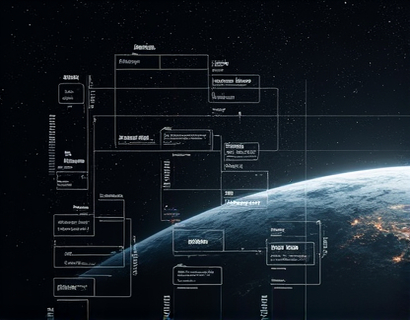Economic Prosperity in Modern Ecosystems: Navigating Market Success and Opportunities
The concept of modern ecosystems in economics represents a paradigm shift from traditional linear models of economic activity. These ecosystems are complex networks of interconnected entities including businesses, consumers, governments, and technological platforms, all interacting within a digital and globalized environment. Understanding the economic dynamics of these ecosystems is crucial for professionals aiming to identify and capitalize on emerging market opportunities. This guide provides strategic insights and detailed analysis to help economists, business leaders, investors, and industry experts stay competitive and informed in today's dynamic economic landscape.
Modern ecosystems thrive on innovation, adaptability, and the rapid exchange of information and resources. Unlike conventional economic models that often focus on isolated sectors, modern ecosystems emphasize the interdependencies and synergies between various components. This interconnectedness creates a fertile ground for economic prosperity, driven by technological advancements, changing consumer behaviors, and global connectivity.
Key Characteristics of Modern Economic Ecosystems
To navigate market success within modern ecosystems, it is essential to understand their key characteristics. These ecosystems are dynamic, resilient, and characterized by constant evolution. Here are some fundamental traits:
- Interconnectedness: Entities within the ecosystem are highly interconnected, facilitating the flow of information, resources, and capital.
- Adaptability: The ability to quickly adapt to changes in the environment, whether technological, regulatory, or market-driven.
- Innovation: Continuous innovation is a driving force, enabling the creation of new products, services, and business models.
- Collaboration: Partnerships and collaborations across different sectors and geographies are common, fostering collective growth and problem-solving.
- Data-driven decision making: The use of big data and analytics to inform strategic decisions and optimize operations.
These characteristics create a robust foundation for economic prosperity, allowing ecosystems to thrive and generate value for all participants. The interconnected nature of these systems means that success in one area can have ripple effects, driving broader economic growth.
Drivers of Economic Prosperity in Modern Ecosystems
The drivers of economic prosperity in modern ecosystems are multifaceted, encompassing technological, social, and economic factors. Understanding these drivers is vital for leveraging opportunities and maintaining a competitive edge.
Technological advancements play a pivotal role in shaping modern ecosystems. Innovations in areas such as artificial intelligence, blockchain, and the Internet of Things (IoT) are transforming industries and creating new markets. For instance, AI is revolutionizing sectors like healthcare, finance, and manufacturing by enhancing efficiency, accuracy, and personalization. Blockchain technology is reshaping supply chains and financial transactions, offering transparency and security. IoT devices are enabling smart cities and industries, optimizing resource usage and improving quality of life.
Social factors, including demographic shifts and changing consumer behaviors, also significantly impact economic prosperity. The global population is becoming increasingly urbanized, leading to new demand patterns and market opportunities. Consumers are more informed and empowered, driving a shift towards sustainable and ethical products and services. This trend is pushing businesses to adopt more responsible practices, not only to meet consumer expectations but also to enhance their brand reputation and long-term viability.
Economic factors such as globalization, trade policies, and financial markets are integral to the prosperity of modern ecosystems. Globalization has facilitated the flow of capital, goods, and services across borders, creating larger and more integrated markets. However, it also introduces challenges such as increased competition and regulatory complexities. Effective navigation of trade policies and financial markets is crucial for businesses to capitalize on global opportunities while managing risks.
Strategies for Capitalizing on Market Opportunities
To succeed in the dynamic landscape of modern ecosystems, businesses and professionals must adopt strategic approaches that align with the ecosystem's inherent characteristics. Here are some key strategies:
First, embracing innovation is essential. Companies should invest in research and development to stay ahead of the curve. This includes exploring new technologies, business models, and market entrants. Collaboration with startups, academic institutions, and other industry players can accelerate innovation and provide access to cutting-edge expertise.
Second, fostering a culture of adaptability is crucial. Businesses must be agile and responsive to changes in the market, technology, and consumer preferences. This involves building flexible organizational structures and processes that can pivot quickly when necessary. Continuous learning and upskilling of the workforce are also vital to maintain a competitive edge.
Third, leveraging data and analytics is a powerful strategy. Modern ecosystems generate vast amounts of data that can be harnessed to gain insights, optimize operations, and make informed decisions. Investing in data infrastructure and analytics capabilities can provide a significant advantage. Businesses should focus on data privacy and security to build trust and comply with regulations.
Fourth, building strong partnerships and collaborations can unlock new opportunities. Engaging with a diverse range of stakeholders, including suppliers, customers, and technology providers, can enhance innovation and market reach. Strategic alliances can also help in sharing risks and resources, particularly in exploring new markets or technologies.
Lastly, adopting a customer-centric approach is fundamental. Understanding and meeting the evolving needs and expectations of customers is key to sustained success. This involves not only product and service innovation but also exceptional customer experiences and support. Listening to customer feedback and incorporating it into business strategies can drive continuous improvement and loyalty.
Case Studies of Successful Navigation in Modern Ecosystems
Examining real-world examples can provide valuable insights into how businesses have successfully navigated modern ecosystems. Here are a few illustrative case studies:
One notable example is Netflix, which transformed the entertainment industry by leveraging technological innovation and data-driven decision making. Initially a DVD rental service, Netflix pivoted to streaming video content, capitalizing on the rise of broadband internet and changing consumer preferences. The company invested heavily in original content and advanced recommendation algorithms, creating a personalized user experience that set it apart from competitors. Netflix's global expansion and continuous innovation have solidified its position as a leader in the streaming market.
Another example is Tesla, which has revolutionized the automotive industry by integrating electric vehicles with advanced technology and sustainable practices. Tesla's focus on innovation, from battery technology to autonomous driving, has disrupted traditional automotive models. The company's direct-to-consumer sales strategy and global network of superchargers have enhanced customer experience and brand loyalty. Tesla's success demonstrates the power of combining technological leadership with a customer-centric approach in a highly competitive market.
These case studies highlight the importance of innovation, adaptability, and strategic partnerships in navigating modern ecosystems. By staying ahead of technological trends, understanding consumer needs, and building strong collaborations, businesses can achieve market success and drive economic prosperity.
Challenges and Risks in Modern Ecosystems
While modern ecosystems offer numerous opportunities, they also present challenges and risks that must be managed effectively. Some of the key challenges include:
First, the rapid pace of change can be overwhelming, making it difficult for businesses to keep up. Continuous monitoring of trends and technologies is essential to identify and respond to new opportunities and threats.
Second, increased competition in interconnected markets can intensify rivalry and reduce profit margins. Businesses must differentiate themselves through unique value propositions and exceptional customer experiences.
Third, regulatory and compliance issues can pose significant challenges, especially in highly regulated industries. Staying informed about regulatory changes and ensuring compliance is crucial to avoid legal and financial repercussions.
Fourth, cybersecurity threats are a growing concern in digital ecosystems. Protecting sensitive data and maintaining the integrity of systems requires robust security measures and ongoing vigilance.
To mitigate these risks, businesses should adopt a proactive approach to risk management. This includes investing in research and development, building resilient supply chains, and fostering a culture of security and compliance. Strategic planning and scenario analysis can help in anticipating and preparing for potential challenges.
Conclusion
Modern ecosystems represent a new frontier in economic prosperity, offering unparalleled opportunities for growth and innovation. By understanding the key characteristics, drivers, and strategies for success in these ecosystems, professionals can navigate the complex landscape effectively. Embracing innovation, adaptability, data-driven decision making, strong partnerships, and a customer-centric approach are essential for achieving market success. While challenges and risks exist, proactive management and strategic foresight can help businesses thrive in this dynamic environment. As the economic landscape continues to evolve, staying informed and agile will be key to unlocking the full potential of modern ecosystems.










































